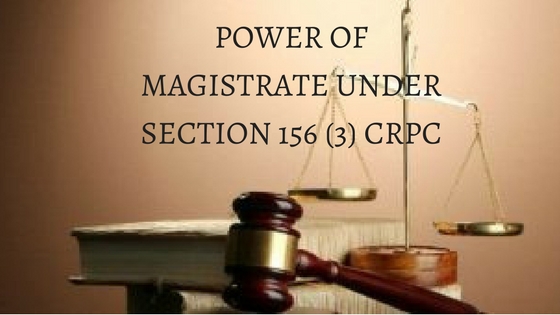Aapka Consultant Judgment Series- In this series, we are providing case analysis of Landmark Judgments of Hon’ble Supreme Court of India.
Sakiri Vasu v. State Of U.P. And Others
(2008) 2 SCC 409
JUDGES: A.K. Mathur, Markandey Katju
Date of decision: 7/12/2007
FACTS:-
The son of the appellant was a Major in the Indian Army. His dead body was found on 23.8.2003 at Mathura Railway Station. The G.R.P, Mathura investigated the matter and gave a detailed report on 29.8.2003 stating that the death was due to an accident or suicide. The appellant who is the father of Major Ravishankar alleged that in fact it was a case of murder and not suicide. The first Court of Inquiry was held by the Army which gave its report in September, 2003 stating that it was a case of suicide. Aggrieved, a writ petition was filed in the Allahabad High Court which was dismissed by the impugned judgment. The petitioner (appellant herein) prayed in the writ petition that the matter be ordered to be investigated by the Central Bureau of Investigation (in short CBI). Since his prayer was rejected by the High Court, hence this appeal by way of special leave.
ISSUE:-
- Whether the magistrate has power to order investigation if FIR has already been registered?
- Whether the magistrate can order for CBI investigation?
JUDGMENT:-
The Hon’ble Court analyzed Section 156 (3) of CrPC and noted that even if an FIR has been registered and even if the police has made the investigation, or is actually making the investigation, which the aggrieved person feels is not proper, such a person can approach the Magistrate under Section 156(3) Cr.P.C., and if the Magistrate is satisfied he can order a proper investigation and take other suitable steps and pass such order orders as he thinks necessary for ensuring a proper investigation. All these powers a Magistrate enjoys under Section 156(3) Cr.P.C.
Section 156(3) Cr.P.C. is wide enough to include all such powers in a Magistrate which are necessary for ensuring a proper investigation, and it includes the power to order registration of an F.I.R. and of ordering a proper investigation if the Magistrate is satisfied that a proper investigation has not been done, or is not being done by the police. Section 156(3) Cr.P.C., though briefly worded, is very wide and it will include all such incidental powers as are necessary for ensuring a proper investigation.
It is well-settled that when a power is given to an authority to do something it includes such incidental or implied powers which would ensure the proper doing of that thing. In other words, Hon’ble Court used doctrine of implied power.
In view of the abovementioned legal position, Hon’ble Court was of the view that although Section 156(3) is very briefly worded, there is an implied power in the Magistrate under Section 156(3) Cr.P.C. to order registration of a criminal offence and /or to direct the officer in charge of the concerned police station to hold a proper investigation and take all such necessary steps that may be necessary for ensuring a proper investigation including monitoring the same. Even though these powers have not been expressly mentioned in Section 156(3) Cr.P.C., but they are implied in the above provision.
In the instant case, no doubt the Magistrate cannot order investigation by the CBI, but this Court or the High Court has power under Article 136 or Article 226 to order investigation by the CBI. That, however should be done only in some rare and exceptional case, otherwise, the CBI would be flooded with a large number of cases and would find it impossible to properly investigate all of them.
HELD:-
In the present case, there was an investigation by the G.R.P., Mathura and also two Courts of Inquiry held by the Army authorities and they found that it was a case of suicide. Hence, in Hon’ble Apex Court’s opinion, the High Court was justified in rejecting the prayer for a CBI inquiry. With the above observations, this appeal stands dismissed. But, it laid down the ambit and scope of Section 156(3) CrPC and held that even if an FIR has been registered and even if the police has made the investigation, or is actually making the investigation, which the aggrieved person feels is not proper, such a person can approach the Magistrate under Section 156(3) Cr.P.C., and if the Magistrate is satisfied he can order a proper investigation and take other suitable steps and pass such order orders as he thinks necessary for ensuring a proper investigation. All these powers a Magistrate enjoys under Section 156(3) Cr.P.C.
To Get Legal Opinion from Advocates/ Legal Experts, Please click here
To Get Legal Opinion from Retired Hon’ble Judges, Please click here












